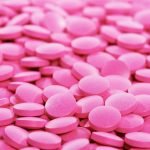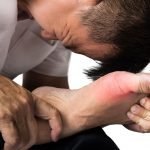New ‘MasSpec Pen’ Can Detect Malignancies in Seconds
Researchers Developed Surgical Pen that Quickly Detects Malignant Tissue
Researchers at The University of Texas have developed a new diagnostic device, in the form of a surgical “pen,” that supposedly can detect malignant tissue in seconds.1 The device has been developed with the intention of helping surgeons remove malignancies on the first go around, thus reducing the chances of its return. The device is being called the “MasSpec Pen.”
More about MasSpec Pen
When studied, the MasSpec Pen took roughly 10 seconds to analyze a human tissue sample, and provide a diagnosis. The instrument was more than 96 percent accurate. The device was efficient at spotting malignancy at the tissue margins where surgeons had been cutting. This gives a reassuring vote of confidence to the routine concern that many patients express after surgery: “I hope they got it all.”
The lead author of the study and assistant professor at UT at Austin anticipates that this “technology could vastly improve the odds that surgeons really do remove every last trace of cancer during surgery.” This could maximize cancer patient treatment and survival. It also could limit the amount of healthy tissue that is removed, which, especially during facial procedures can be a very significant concern. Lumpectomy within breast tissue is also an area where nerve damage can have painful and long lasting side effects from too much tissue being removed. It’s a conflict between wanting to get all the cancer out, and not wanting to take too much tissue, that until now has been difficult to determine.
MasSpec Pen Differs from Frozen Section Analysis (FSA)
The MasSpec Pen is different from Frozen Section Analysis (FSA), which is the current method of cancer detection used in surgical scenarios. It only takes 10 seconds, compared to the 30 minutes (or more) of FSA. It can be performed during the actual procedure. The pen is placed against the patient’s skin during the procedure, and activated by a foot pedal. The pen releases a small drop of water on the tissue, and then analyzes the molecules that find make their way into the water, through mass spectrometry (actually contained within the device!). The faster time of diagnosis means that the patient is in surgery less time, thus lowering the risk of infection and adverse reaction to anesthesia.
Other Similar Technologies like iKnife
There are other similar technologies, such as iKnife, that is a surgical knife that is able to accurately differentiate cancer and normal breast tissue in real time. It also works with a mass spectrometer that measures the smoke that comes from the tissue being heated as it is cut. The accuracy of this device is also near 96 percent, and could prevent repeated surgeries that between 20 to 30 percent of patients can expect currently.
Source
- Source: Zhang J, Rector J, Li JQ et al. Nondestructive tissue analysis for ex vivo and in vivo cancer diagnosis using a handheld mass spectrometry system. Science Translational Medicine. 2017.
Image Copyright: <a href=’https://www.123rf.com/profile_lightwise’>lightwise / 123RF Stock Photo</a>
 Node Smith, ND, is a naturopathic physician in Portland, OR and associate editor for NDNR. He has been instrumental in maintaining a firm connection to the philosophy and heritage of naturopathic medicine among the next generation of docs. He helped found the first multi-generational experiential retreat, which brings elders, alumni, and students together for a weekend camp-out where naturopathic medicine and medical philosophy are experienced in nature. Four years ago he helped found the non-profit, Association for Naturopathic ReVitalization (ANR), for which he serves as the board chairman. ANR has a mission to inspire health practitioners to embody the naturopathic principles through experiential education. Node also has a firm belief that the next era of naturopathic medicine will see a resurgence of in-patient facilities which use fasting, earthing, hydrotherapy and homeopathy to bring people back from chronic diseases of modern living; he is involved in numerous conversations and projects to bring about this vision.
Node Smith, ND, is a naturopathic physician in Portland, OR and associate editor for NDNR. He has been instrumental in maintaining a firm connection to the philosophy and heritage of naturopathic medicine among the next generation of docs. He helped found the first multi-generational experiential retreat, which brings elders, alumni, and students together for a weekend camp-out where naturopathic medicine and medical philosophy are experienced in nature. Four years ago he helped found the non-profit, Association for Naturopathic ReVitalization (ANR), for which he serves as the board chairman. ANR has a mission to inspire health practitioners to embody the naturopathic principles through experiential education. Node also has a firm belief that the next era of naturopathic medicine will see a resurgence of in-patient facilities which use fasting, earthing, hydrotherapy and homeopathy to bring people back from chronic diseases of modern living; he is involved in numerous conversations and projects to bring about this vision.










